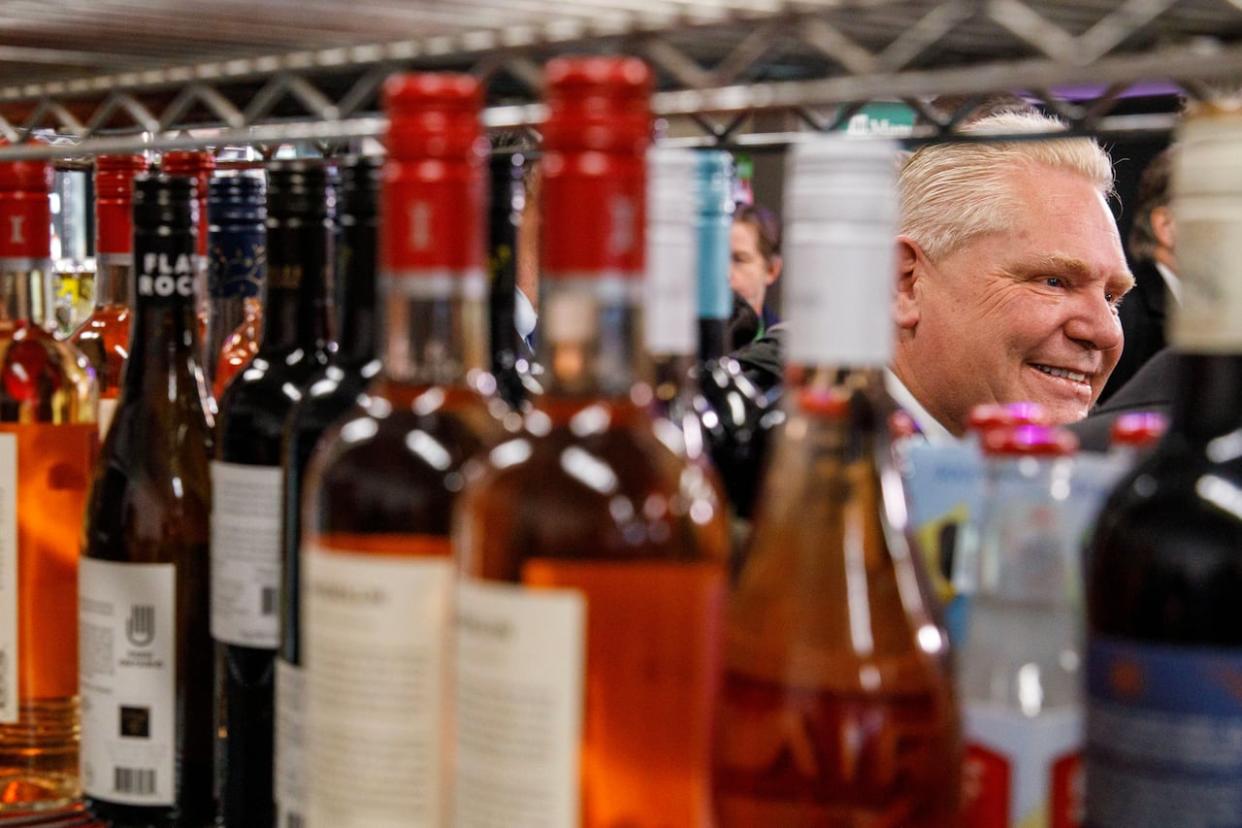Alcohol sales coming to Ontario corner stores by September

Ontario is introducing sales of beer, wine and ready-made cocktails into corner stores and additional supermarkets 16 months ahead of schedule, a move that will see the province pay up to $225 million to The Beer Store.
Retailers, including convenience stores and gas stations, will be able to start selling the low-alcohol beverages as of Sept. 4. The process for applying for a licence from the Alcohol and Gaming Commission of Ontario (AGCO) will open on June 17, the province says.
Similarly, the 450 grocery stores provincewide that already have licences for beer and wine will be allowed to sell ready-to-drink cocktails on Aug. 1.
All other supermarkets and grocers will then be able to sell beer, wine, cider and canned spirit drinks as of Oct. 31.
The retail locations participating in the government's expansion of where alcohol will be available for purchase will be able to sell any packs of beer of any size, including 30 packs. They will also be able to set their own prices, though the province has regulated minimums.
Premier Doug Ford and Finance Minister Peter Bethlenfalvy announced the impending changes at a news conference in Etobicoke Friday morning.
"It was just a few months ago that we were together talking about our plan to give people more choice and more convenience when it comes to buying beer, cider, wine and other alcoholic beverages in Ontario. The response from the public, from stakeholders, from small businesses has been absolutely overwhelmingly positive," Ford said Friday.
"That's because our plan will create new growth opportunities for local brewers, wineries, retailers and small businesses. It's going to support local jobs and most importantly, it's going to give people more choice and convenience," he added.
The provincial government's strategy to "modernize" the alcohol was first released last December, but it wasn't supposed to take effect until 2026.
That timeline was in part due to the province's Master Framework Agreement (MFA) with the multinational brewing conglomerates that own The Beer Store, which currently has a quasi-monopoly on the distribution and sale of beer in Ontario.
The MFA, a 10-year agreement signed by the previous Liberal government, gave The Beer Store exclusive rights to sell 12- and 24-packs of beer as the province expanded sales of beer and wine to grocery stores. It was set to expire in 2025.
At a technical briefing for media Friday, Ministry of Finance officials said the $225 million from the province will help The Beer Store maintain jobs, its retail footprint, and offset the costs of an accelerated timeline for beer sales at more locations throughout Ontario.
The Beer Store is also set to remain the primary wholesale distributor of beer in the province, and run its recycling program, until 2031.
Meanwhile, the LCBO will continue to be the only retailer that sells high-alcohol spirits like gin and whisky, and will be the only wholesale seller of alcohol in the province. Retailers who enter the space as a result of the expansion will get an interim wholesale discount of 10 per cent from the LCBO basic retail price until 2026.
8,500 new locations expected: Finance Ministry
The ministry estimates there will be some 8,500 new locations where consumers can purchase low-alcohol products, giving Ontario the third-highest density of alcohol retail stores among the provinces, behind only Newfoundland and Labrador and Quebec.
Ontario will be the third jurisdiction in Canada to offer beer in corner stores and the first to sell ready-to-drink cocktails in those locations.
The AGCO will be responsible for licensing retailers, and the government says the expansion will come with stronger penalties for infractions. Retailers whose licences are revoked won't be able to reapply for two years.
The government is putting an additional $10 million over five years to support social responsibility, but a coalition of public health and advocacy organizations have called on the province to develop a comprehensive alcohol strategy for reducing harms.
The coalition, which includes the Canadian Mental Health Association and the Canadian Cancer Society, says alcohol-related harms cost Ontario more than $7 billion annually, and the last time access to alcohol was expanded in the province, the number of emergency department visits related to alcohol grew.

